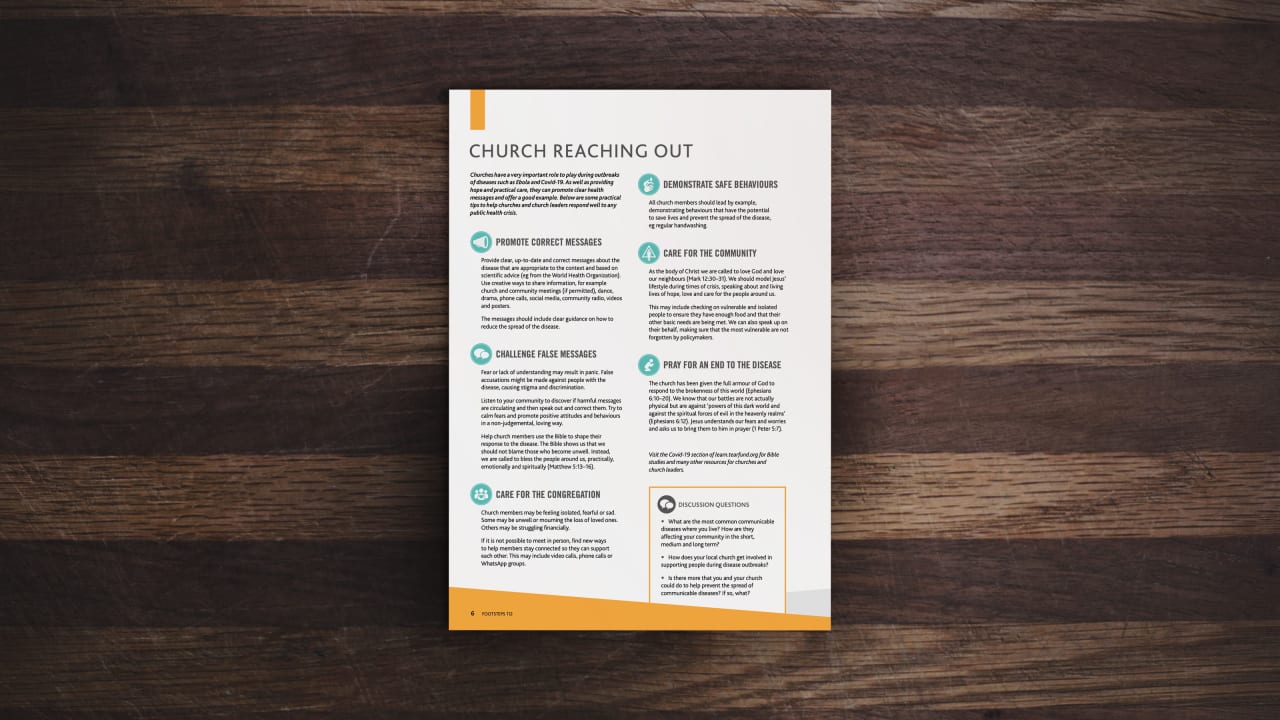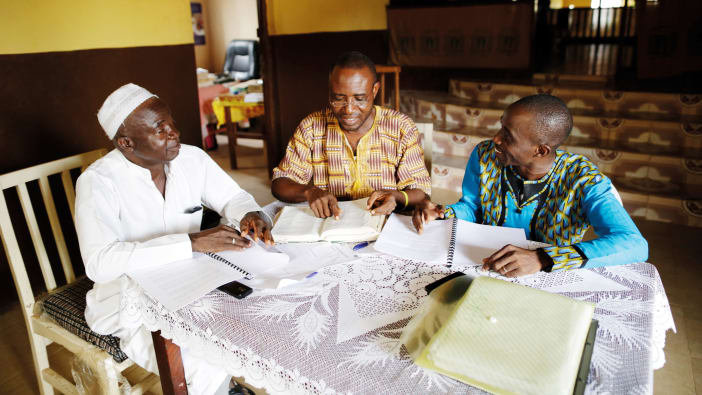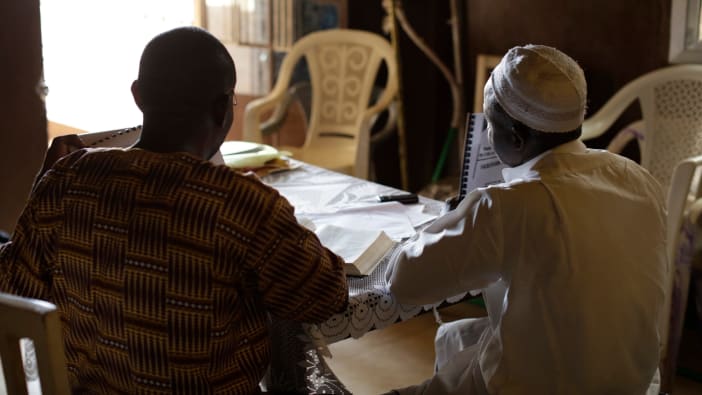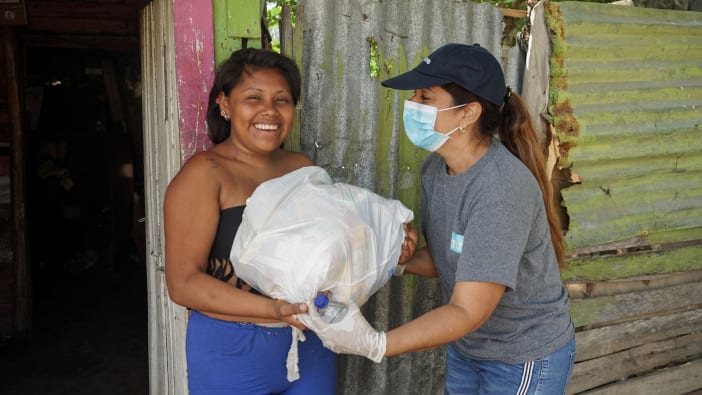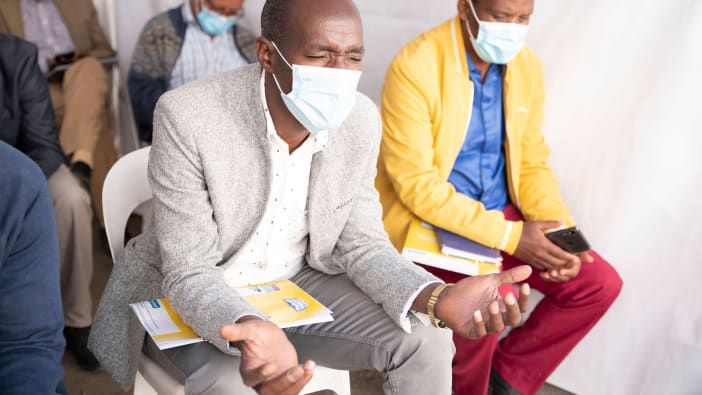Churches have a very important role to play during outbreaks of diseases such as Ebola and Covid-19. As well as providing hope and practical care, they can promote clear health messages and offer a good example. Below are some practical tips to help churches and church leaders respond well to any public health crisis.
Promote correct messages
Provide clear, up-to-date and correct messages about the disease that are appropriate to the context and based on scientific advice (eg from the World Health Organization). Use creative ways to share information, for example church and community meetings (if permitted), dance, drama, phone calls, social media, community radio, videos and posters.
The messages should include clear guidance on how to reduce the spread of the disease.
Challenge false messages
Fear or lack of understanding may result in panic. False accusations might be made against people with the disease, causing stigma and discrimination.
Listen to your community to discover if harmful messages are circulating and then speak out and correct them. Try to calm fears and promote positive attitudes and behaviours in a non-judgemental, loving way.
Help church members use the Bible to shape their response to the disease. The Bible shows us that we should not blame those who become unwell. Instead, we are called to bless the people around us, practically, emotionally and spiritually (Matthew 5:13–16).
Care for the congregation
Church members may be feeling isolated, fearful or sad. Some may be unwell or mourning the loss of loved ones. Others may be struggling financially.
If it is not possible to meet in person, find new ways to help members stay connected so they can support each other. This may include video calls, phone calls or WhatsApp groups.
Demonstrate safe behaviours
All church members should lead by example, demonstrating behaviours that have the potential to save lives and prevent the spread of the disease, eg regular handwashing.
Care for the community
As the body of Christ we are called to love God and love our neighbours (Mark 12:30–31). We should model Jesus’ lifestyle during times of crisis, speaking about and living lives of hope, love and care for the people around us.
This may include checking on vulnerable and isolated people to ensure they have enough food and that their other basic needs are being met. We can also speak up on their behalf, making sure that the most vulnerable are not forgotten by policymakers.
Pray for an end to the disease
The church has been given the full armour of God to respond to the brokenness of this world (Ephesians 6:10–20). We know that our battles are not actually physical but are against ‘powers of this dark world and against the spiritual forces of evil in the heavenly realms’ (Ephesians 6:12). Jesus understands our fears and worries and asks us to bring them to him in prayer (1 Peter 5:7).
Visit the Covid-19 section of learn.tearfund.org for Bible studies and many other resources for churches and church leaders.
Discussion questions
- What are the most common communicable diseases where you live? How are they affecting your community in the short, medium and long term?
- How does your local church get involved in supporting people during disease outbreaks?
- Is there more that you and your church could do to help prevent the spread of communicable diseases? If so, what?


